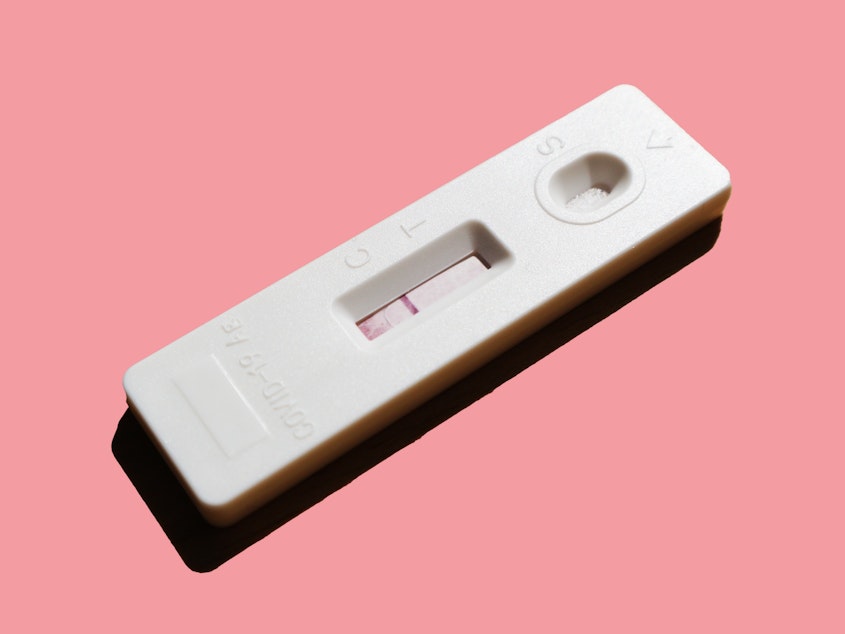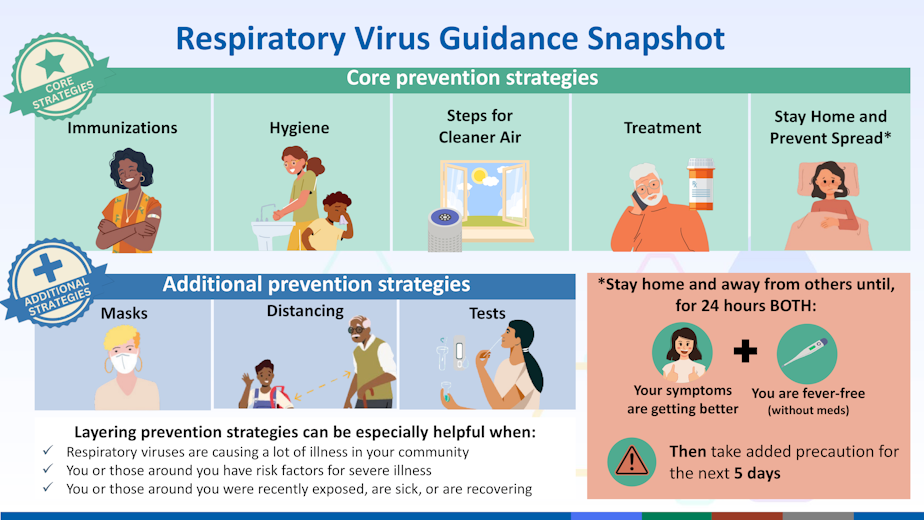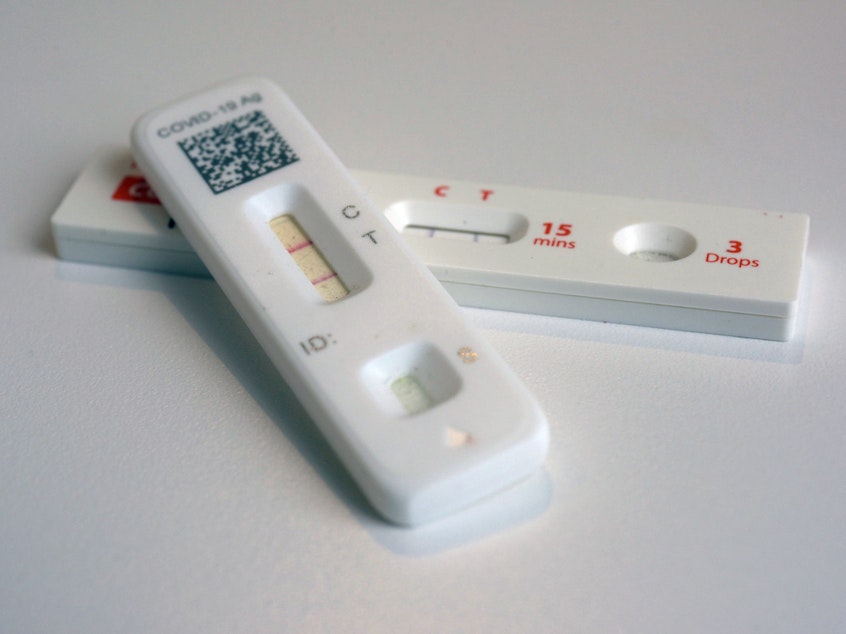Covid isolation reduced to 24 hours in Washington state

Washington’s Department of Health announced Monday that people experiencing Covid symptoms only need to isolate for 24 hours or until their health improves. Previous guidelines from the state and the Centers for Disease Control and Prevention (CDC) recommended people stay home for at least five days to stop the spread of the disease.
Health officials say previous guidelines were based on time, while the new ones are focused on symptoms.
“When their symptoms are getting better overall and they've not had fever for at least 24 hours without having to use fever-reducing medicines,” Dr. Tao Sheng Kwan-Gett, chief science officer for Washington’s Department of Health, said in an interview with KUOW.
RELATED: Do doctors have a right to free speech, even when it includes spreading misinformation?
Kwan-Gett said, even though Covid remains a “significant threat,” vaccinations and population immunity in Washington have led to a decrease in case numbers.
The guidelines are exactly that — recommendations for people to stay healthy. They are not enforced and could change from place to place.
“Any organization, business, facility, or jurisdiction can choose to have more protective recommendations,” Kwan-Gett said. “So, people should always be aware of the place you're visiting has different recommendations from these general guidelines.”
The new guidelines apply to all respiratory infections, Kwan-Gett said. That includes the flu, respiratory syncytial virus, Covid, and others. Combining this information should make guidance clearer and simpler for people to follow, he said.
Not much should change at hospitals and clinics, he said. Health care settings have their own specific CDC guidance, with which Washington remains aligned.

State health officials also released tips for people to not spread respiratory illnesses to people who are immunocompromised and more susceptible to getting sick or dying.
The best way to stay safe and slow the spread of the disease is to keep up on vaccinations, like covid boosters and the annual flu shot, Kwan-Gett said.
“In Washington state, more than a dozen people are losing their lives to Covid-19 each week still,” he said, “and we can't rest until that number is zero.”

The new recommendations from the health department are not intended for hospitals and long-term care facilities, rather, for folks going about day-to-day activities — work, school, shopping, etc.
RELATED: Why older people and the immuno-compromised could need yet another Covid shot
In short, people can go about their regular routines 24 hours after:
- Symptoms have generally improved
- A person has not had a fever (without using fever-reducing medications)
(Previous state guidance recommended a set number of days for a person to isolate.)
DOH further recommends wearing a mask, having good air flow/filtration, physical distancing, hand washing, etc. for the first five days after returning to regular activities.
It's worth noting that while someone may feel better and show no symptoms, they can still spread viruses. Folks with Covid can still spread the virus up to 10 days after they first get sick. The flu can be spread up to a week after someone first becomes ill, and RSV can be spread up to eight days.
Take into consideration folks who are at higher risk for Covid and other illnesses. Avoid high-risk persons for 10 days after symptoms begin; or for 10 days after testing positive if you show no symptoms. Stay away from folks at higher risk until you have a negative Covid antigen test.


